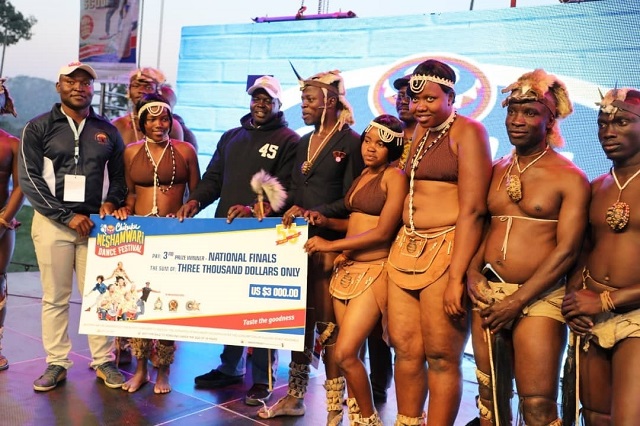Mashonaland Central’s Guruve Marimba came first followed by Makarekare Ensemble from Mashonaland East.
Mthabisi Dube, director of the Bolamba Performing Arts which is based in Kafusi area in Gwanda, attributed their success to dedication and hard work.
For their efforts, the group bagged $3 000.
Dube said it was the first time that the group had reached the finals adding that it was a huge milestone for them.
“We’ve been practising really hard and we were well prepared for the competitions. This is a great achievement for us as a group because we’ve been participating in the competitions since 2009, but have never reached the finals.
“We attribute this success to dedication and hard work and we’re glad to have managed to represent our province well by obtaining third place,” Dube said.
“This is the exposure that we needed and from here, we’ll strive for excellence.”
The director said they cruised to victory after performing a Tswana traditional dance known as Tsutsube/Khoisan dance.
In June, Bolamba beat seven other groups from Matabeleland South and secured a ticket to represent the province at the national finals.
National Arts Council of Zimbabwe Matabeleland South Provincial arts manager, Nokuthula Moyo, said they were proud of the achievements made by Bolamba.
“We’re happy and proud that Bolamba Arts has represented us well as a province. We wish them well in future endeavours,” Moyo said.
Dube said it was their wish as a group to perform on international platforms and have their members earn a living through their activities. He said they were set to shoot their first DVD album and venture into edutainment on prevention of HIV among adolescents and children.
For now, the group is rehearsing ahead of the Ingwebu dance competitions for the southern region whose finals will be held in Bulawayo next month.
Bolamba Performing Arts, an entertainment group that specialises in dance, poetry and theatre, perform Sotho and Tswana traditional dances such as Setapa, Phathisi and Sebirwa. They also perform Ndebele dances – Hosana and Sitshikitsha. The group was formed in 2009 and has 15 members ranging from 18 to 50 years. – Chroncile




